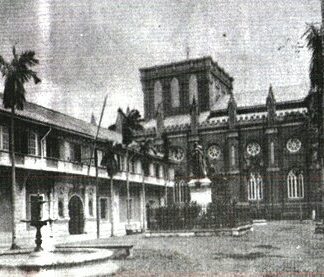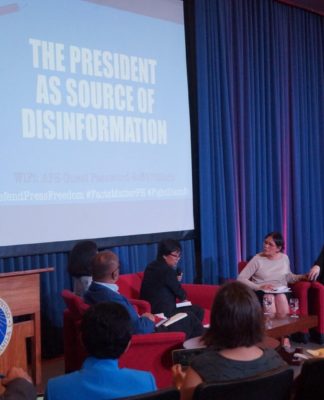The right hand knows not what the left hand is doing.
This appears to be the case as the latest importation of the UST Hospital (USTH) of new equipment has once again held up — this time by the Bureau of Customs (BoC).
BoC chief tax specialist Edna V. Garcia says the non-registration of the USTH—the new name of the Santo Tomas University Hospital (STUH)—with the Securities and Exchange Commission (SEC) does not grant it the juridical personality to enjoy tax-exemption status under the law.
Ironically, it was the same Customs that released an earlier USTH shipment of MRI scanners. The release had been put on hold by Education Undersecretary for legal affairs Jaime Jacob, who at first questioned the hospital’s alleged lack of incorporation and later, because that had been found to be in order, questioned the fact that the hospital management is not under the day-to-day care of the Dominicans, the owners of the hospital. Jacob was overruled by Education Secretary Raul Roco, himself a lawyer, who found the hospital’s incorporation and other papers in order and agreed with the hospital that the scanners were for educational purposes. It goes without saying that the BoC agreed with Roco as it released the shipment forthwith.
But now, the graft-prone BoC is contradicting itself. Ostensibly because the same papers submitted to Jacob show neither the name USTH nor STUH, it is insisting that the hospital is not tax-exempt. For the record, what is registered with SEC is “Santo Tomas Hospital.” But to be sure, there is only one hospital by that name—or something close to that name—in Sampaloc, Manila, the domicile of the SEC-registered entity. Apparently, either the BoC or Jacob knows of another Santo Tomas Hospital. We do not. Are they saying the UST Hospital is attempting to defraud government?
What do you call Jacob and Garcia, then? Pornographers of technicality? Legal sophists and semanticists? Or legal cretins? (That’s quite unfair to the cretins.)
However, we know what this episode means. It means the stupidity of government. It shows an anatomically confused government that does not know what its different parts are doing. To be sure, in clearing the shipment, Roco reaffirmed the hospital’s tax-exempt status. And in releasing the equipment, the BoC agreed with Roco. But now, the same Customs is backtracking. (We must add here a 1990 Bureau of Internal Revenue ruling that declared all UST Hospital importations as tax-exempt. BIR and BoC are under the Department of Finance. Again, the right hand not knowing what the left is doing!)
True: the USTH generates revenue from its operation. However, let us not forget that the hospital operates a large charity ward that provides free medical services to poor patients. In fact, the UST charity ward is the largest private charity hospital in the country. This is aside from the fact that USTH also serves as a venue for internship of the University’s Medicine and Nursing students and other students from allied courses. What is the best proof that the hospital importations have been used for educational purposes? The fact that UST students dominate the state board exams in Medicine, Nursing and allied fields. That, and the fact that many poor patients have been treated at the UST Hospital’s charity ward by specialists assisted by the interns and students of UST.
It is but logical that USTH should import new and more advanced equipment in order to maintain the high standards of education and public service that it is known for. Its tax-exempt status emanates from no less than the Philippine Constitution, which declares the State’s commitment to the promotion and protection of the right to health and education of its citizens. To deter such a noble intention on the ground of strict compliance with the technicalities of the law would discourage the growth and development of our society. Worse, it will imperil the health and well-being of the citizenry.
Assuming arguendo that USTH (or STUH) is indeed not entitled to tax exemption as the BoC alleges, the absence of a just and equitable rate for the tax assessors to base their computations would subject the USTH to harassment and crippling taxes. This, in effect, would set a precedent for other academic institutions to be taxed on the same subjective rates.
The possible repercussions of this tax-exemption issue involving the USTH should be seriously considered and weighed. Where the power to tax is a catalyst for building a nation, such power should be prudently exercised by the state so as not to trample on the rights of the citizens on which it depends, in the final analysis, for support, relief, and yes, taxes.

















